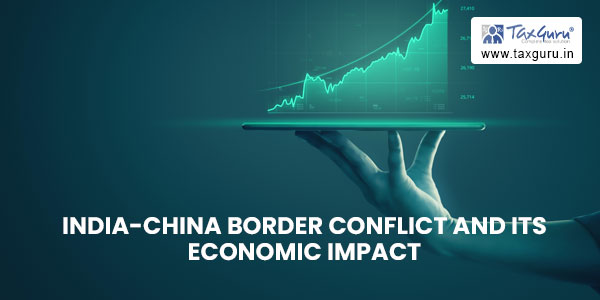India, the biggest Asian power, is a key player in the Indo-Pacific region, connecting countries like Japan, China, South Korea, and others. Since India is a democratic nation, its foreign policy and internal politics are subject to major changes, which affect the whole region.
In the recent days, the geopolitical situation in the region has shifted and the world has been actively watching the updates from the region. Recently, India and China have been engaged in an escalating border dispute, which has threatened to cause militarization in the region. Apart from this, India and Japan had also entered into a conflict for control over the Senkaku Islands. The whole region has also been affected by the military tensions prevailing in Taiwan and the South China Sea.
The unresolved geopolitical situations and military tensions in the region has had economic implications for the countries in the Indo-Pacific region. India’s slowing economy has been the source of worry, with various industries being affected. The defense sector of India, which is a major contributor to the country’s economy is also facing a slowdown in defence production and exports. Japan’s economy, which is heavily reliant on trade, is struggling to keep pace with the growth rate of India.

Similarly, China’s economy has been affected due to the efforts of other countries to control its economic and political expansion in the region. Many countries in the region, like Vietnam and the Philippines, are experiencing economic slowdown due to political instability, and the possibility of an economic crisis cannot be discounted.
To ensure long-term stability and development in the Indo-Pacific region, it is important for all the countries involved to resolve their differences and reach a consensus on the issues at hand. There is a need to reform the existing security architecture and build positive relations between the countries in the region.
India and China have been at odds with each other over the border issue and have been engaged in military mobilization and military exercises in the area, but a resolution must be achieved. Similarly, India and Japan should renegotiate the Senkaku Islands issue, which has the potential to lead to major dispute in the region if left unresolved. Further, the importance of international collaboration to create a secure and prosperous Indo-Pacific region should not be overlooked.
In order to mitigate the various economic and military issues that are prevailing in the Indo-Pacific region, it is important to build trust between the countries involved and to create economic and defence cooperation. International economic institutions and agencies should help in creating investment and development opportunities for these countries and should also create effective economic policies for the region.
The Indo-Pacific region has a lot of potential and if the countries involved work together then it could lead to powerful economic growth and stability, not only in the region but also in the whole world.
In conclusion, the Indo-Pacific region is facing numerous economic and political challenges, which have threatened to destabilize the region and the global economy. In order to avoid further economic and military turmoil, it is important that all the countries involved in the region cooperate with each other and work towards creating a stable and prosperous economic environment. International economic institutions and organizations should also play an important role in helping these countries create a secure and prosperous future in the Indo-Pacific region.





